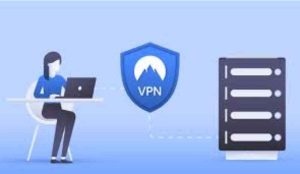How to Choose a Reliable VPN Providers

A few years ago, no one knew what a VPN was. There are many VPN providers these days and competition is fierce. There are many factors you can consider. The first is a free or paid option. Then it goes into details like the number of servers, added features, and logging policies. All of these factors impact your user experience and overall satisfaction.
Here are the characteristics that correctly represent the quality of a VPN:
Table of Contents
Privacy and security
Security is the main reason behind the invention of VPNs. They ensure that your IP address remains hidden and that there are no data leaks in the event of a connection loss.
This is why a kill switch should be an essential part of your VPN providers. This way you will be disconnected from your WiFi as soon as the connection to the server is lost. There should be a zero tolerance rule for the loss of sensitive data.
Free VPNs compromise security to make money. Since they offer a zero-dollar service, they either share your data with third parties or advertisers or throttle your bandwidth.
Be sure to choose a company that has been independently audited so you can trust their privacy and security claims.
Speed
You wouldn’t use a VPN if a simple website took five minutes to load. And you definitely won’t use it if you’re a gamer and suffer from lag.
By definition, a virtual private network slows down your connection a bit. In certain cases it is more visible than in others. In fact, the data has to physically pass through multiple servers.
If you’re a gamer, use a VPN trial to test some competitors and see who’s the fastest. As an added bonus, you bypass bandwidth throttling if you use too much data.
Encryption Type
Hackers can listen to your communications when you connect to public Wi-Fi. Every message you send is first routed through this and then forwarded to the person you want to send it to.
The method they use is a man-in-the-middle attack. VPNs hide the information hackers are looking for and go even further by encrypting it. Encryption methods vary, but the standard is AES 256-bit.
Math is fun here. If a hacker wanted to decrypt a 256-bit message, they would have to guess 2^256 numbers. That’s more than the figure of atoms in the universe. And all the computers in the world couldn’t do that in a thousand years. It should also be safe.
Multiple Devices
We all use several devices in our daily lives. And every connected device poses a cybersecurity risk. Make sure you have a plan that supports multiple devices. This is a great deal for families or even a few friends who subscribe.
Number of servers
More servers = faster connections + speed.
You can determine the quality of a VPN service by the number of servers. The more servers you have, the more IP spoofing you can do and be invisible to your ISP.
Logging Policy
Providers may store and collect your browsing activities. Your policy towards newspapers is important. For example, a no-logs policy means there are no records of what you browse. This way, even the VPN providers doesn’t know which sites you visit.
There have been certain cases where VPN companies shared their users’ logs upon the government’s request. Even if the users whose data was logged were criminals, this means that all other users’ logs were kept.
This is one of the reasons why you should avoid free services. Just because a company states a no-logging policy doesn’t mean you have complete privacy.
Added Features
VPNs don’t just hide your IP address and encrypt your data. They go one step further and offer a complete security package. A good example of this is the kill switch mentioned above. Each company has its own package and you need to figure out which features make a difference while browsing.
ALSO READ: 5 Advantages EPCR Software Offers First Responders
ALSO READ: The Advantages of Being A B2B Marketing Influencer On LinkedIn




